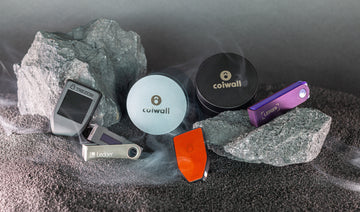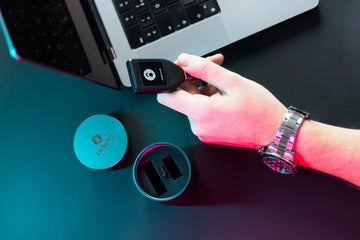When it comes to securing cryptocurrency investments, hardware wallets are a preferred choice for many due to their robust security features. Among the leading options in this category are Ledger and Trezor, both offering devices designed to keep digital assets safe from online threats. This article provides a balanced comparison of these two hardware wallet providers, examining their device models, security measures, supported cryptocurrencies, and overall user experience.
Company Backgrounds
Trezor, developed by SatoshiLabs and launched in 2013, was the first hardware wallet introduced to the market. Based in Prague, Czech Republic, Trezor emphasizes open-source software and transparency in its operations. Ledger, founded in 2014 and headquartered in Paris, France, has gained prominence for its secure element chip technology and proprietary operating system. Both companies have established themselves as reputable providers in the cryptocurrency security space.
Device Models
Trezor offers several models:
Trezor Model One: Supports over 1,500 cryptocurrencies.
Trezor Model T: Featuring a color touchscreen and support for a broader range of digital assets.
Trezor Safe 3: Introduced in 2023, it features a monochromatic OLED screen and supports a wide range of cryptocurrencies.
Trezor Safe 5: Released in 2024, it includes a color touchscreen with haptic feedback and enhanced security features.
Ledger's lineup includes:
Ledger Nano S Plus: Supports over 5,500 cryptocurrencies.
Ledger Nano X: Offers Bluetooth connectivity and increased storage capacity.
Ledger Stax: Featuring a curved E Ink® touchscreen and advanced functionalities.
Ledger Flex: Introduced in 2024, it offers a flat E Ink® touchscreen.
Security Features
Security is paramount for hardware wallets, and both Trezor and Ledger implement robust measures:
Trezor: Utilizes an open-source firmware approach, allowing for community audits and transparency. The Safe 5 model includes a Secure Element (EAL6+) and features like PIN and passphrase protection.
Ledger: Employs a proprietary operating system (BOLOS) and integrates a secure element chip (CC EAL5+ certified) to protect against physical and digital attacks. The Ledger Flex features a secure E Ink® touchscreen driven directly by the Secure Element, enhancing transaction security.
Supported Cryptocurrencies
Ledger supports a wider array of cryptocurrencies, with compatibility for over 5,500 digital assets. Trezor supports more than 1,500 cryptocurrencies, which, while substantial, is fewer than Ledger's offerings. Notably, some coins like Ripple (XRP) and Monero (XMR) are supported by Ledger but not by Trezor.
User Experience and Interface
Trezor: Features a user-friendly interface with the Trezor Suite desktop application. The Safe 5's color touchscreen with haptic feedback enhances usability, especially for beginners. However, Trezor lacks a dedicated mobile app, which may limit on-the-go accessibility.
Ledger: Offers the Ledger Live application for both desktop and mobile platforms, providing a comprehensive interface for managing assets, staking, and accessing decentralized applications (DApps). The Nano X's Bluetooth capability allows for wireless connectivity with mobile devices, adding to its convenience.
Additional Features
Staking and NFTs: Ledger Live supports native staking for various cryptocurrencies and includes NFT management capabilities. Trezor requires third-party integrations for staking and NFT functionalities.
Open-Source vs. Proprietary Software: Trezor's commitment to open-source software appeals to users who value transparency and community audits. Ledger's proprietary software offers a polished user experience but may be less appealing to those who prioritize open-source solutions.
Conclusion
Both Trezor and Ledger provide reliable hardware wallets with strong security features and support for a wide range of cryptocurrencies. Trezor's open-source approach and user-friendly design make it a solid choice for those who value transparency and simplicity. Ledger's extensive cryptocurrency support, advanced security measures, and comprehensive mobile app integration offer a versatile solution for users seeking a feature-rich experience. Ultimately, the choice between Trezor and Ledger will depend on individual preferences regarding security, supported assets, and desired functionalities.







